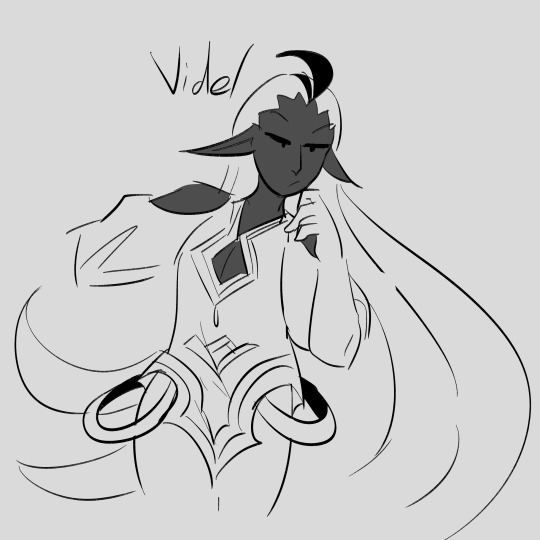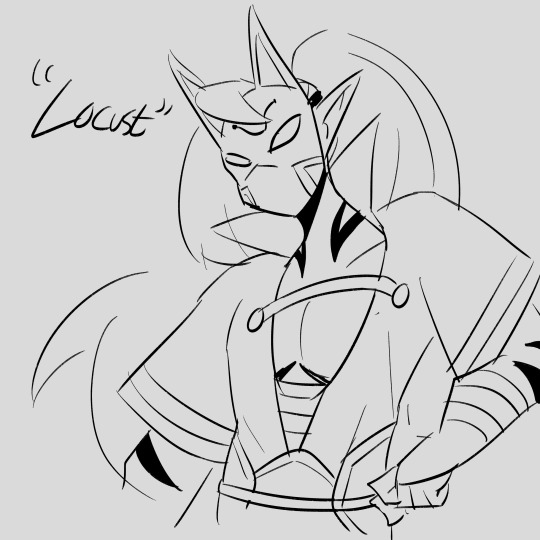#unfortunately i never thought further than a few plot points & have barely drawn these 3. maybe that can change
Explore tagged Tumblr posts
Text



videl & his assistants
#videl: i could use some help😔 *ASSIGNED A CONCUBUS-IN-DISGUISE TO HELP* *A WEREWOLF FALLS SO HARD FOR HIM HE JUST JOINS* Okay.#thinking abt how on my main i was talking abt 'game idea: three guys in a place' when these three are already here#to be fair the settings were different but i was like... wait. i already have a story about 3 guys in various places.#unfortunately i never thought further than a few plot points & have barely drawn these 3. maybe that can change#ocs#character: videl#character: locust#character: soryn#i've changed locust's name so i'll need to fix their tags in the morning
3 notes
·
View notes
Text
THESE MOVIES FUCK - JANUARY 2020
I watched ten movies this month. Let me tell you what I thought.
Once Upon a Time in the West (1968, dir. Sergio Leone) is a movie that tells you who it is right up front. The opening 15 minutes of this legendary spaghetti Western are paralleled in their perfection only by the other 150, establishing the tone for the whole movie; an excruciatingly slow, tense and beautiful crawl through the arid, picturesque blank slate of the desert. There is very little action in this movie, and not much in the way of dialogue. There doesn't need to be. Sergio Leone's direction, Ennio Morricone's music, and the subtle performances of a young Charles Bronson and a playing-shockingly-against-type Henry Fonda, among others, all congeal into a movie you could probably watch and love even if the dialogue wasn't there at all.
A Fistful of Dollars (1964, dir. Sergio Leone) is one of those movies that's more influential than it is good. It's undeniable how massive of an impact this movie left on film, from practically inventing a lot of what became the Spaghetti Western to launching the career of a young Clint Eastwood, but in my eyes this is a pretty weak movie. A low-budget remake of the classic Kurosawa jidaigeki picture Yojimbo, there's definitely a lot of charm here -- you can already see Sergio Leone's style in its infancy, and Clint Eastwood is as fantastic as ever in his portrayal of the Man with No Name here -- embodying that classic mysterious drifter archetype seemingly effortlessly -- but to my eyes there's just a lot missing here that makes it a sort of drab experience, unfortunately. Still worth a watch, and still very much recommended if you're interested in the history of low-budget film or the history of the Western in general.
Rambo: Last Blood (2019, dir. Adrian Grunberg) is a movie that left me massively conflicted; on the one hand, I want desperately to love the unapologetic throwback to '70s exploitation cinema (in particular, vigilante movies, low-budget spaghetti Westerns, and good old-fashioned splatter) that this movie clings to -- but on the other hand, it fully embodies all the worst elements of those movies and combines them with a pathetic excuse for a plotline, underdeveloped characters, and shoddy effects work. When I think Rambo, I think "Sylvester Stallone in the jungle, mowing down hordes of nameless mooks; this movie, conversely, feels more like a Chuck Bronson Death Wish movie than any of the previous Rambos, and carries all the baggage of that wave of '70s vigilante movies, the good and the bad. The way this movie portrays Mexicans makes me think it was written by a Fox News boomer, and given that Sly is in his 70s it totally might be; to be slightly fair to him this movie was apparently written before the excellent fourth Rambo movie, and its already-tired-in-2010 plotline has aged like milk since then. Not to mention the women characters in this, which are little more than props and only serve to give John Rambo a reason to kill everything in his line of sight, and have no personality beyond "morality pet for 70-year-old veteran guy". So I'm not sure how I felt about this movie on first watch. It is a love letter to all the great low-budget cinema that made loose cannon cowboys and renegade cops cool again, but doesn't seem to have learned at all from the 40 years since then.
For a Few Dollars More (1965, dir. Sergio Leone) is, for my money, the definitive spaghetti Western. Lee van Cleef and Clint Eastwood turn in classic performances as the quintessential badass bounty hunters kicking ass on the Mexican border. I love, love, love bounty hunter stories, and this is one of the great bounty hunter stories of all time -- though, don't try to follow the plot too closely, as it is definitely a bit of a mess, though it's at least a fun one. The first hour or so of this movie is basically all setup, whether that's setting up Clint Eastwood's character, setting up Lee van Cleef's character, them meeting in the bar, them trying to one-up each other, etc. But, once the plotline does kick in, it's a great time, with the villain El Indio being played by the great Gian Maria Volonte (who was also in A Fistful of Dollars), a giggling madman who leads a gang of bank robbers and has a brutal quickdraw hand. The scene in the church, where El Indio murders a man's wife and baby offscreen for selling him out and then forces him into a quickdraw duel, is one of the truly great scenes in Western history; this, also, is where you can see the classic elements of Sergio Leone's style begin to play out -- the extreme close-ups, the drawn-out tension, and of course the bombastic score by Ennio Morricone. And that, finally, is another thing that needs to be noted: this has perhaps one of Morricone's greatest scores; the main title theme is a classic piece of spaghetti Western music, up there with his similarly-incredible scores for Leone's next two pictures. To put it simply: if you like cowboys, if you like Clint Eastwood, or if you just plain like badass motherfuckers doing badass shit, this movie is a must fucking watch. Highly recommended.
Reviewing Parasite (2019, dir. Bong Joon-Ho) without spoiling it is pretty much like holding a hand grenade in your bare hands, so I am going to keep this as short as possible: This movie is at once hilarious and tragic. This movie is a sometimes-brutal satire of capitalism that pulls very few punches. This movie has convinced me that I need to watch Bong Joon-Ho's other stuff as soon as I can, and finally the important part: This movie deserves all of the hype it's been receiving. Highly, highly recommended.
I recently rewatched Kill Bill (2003-04, dir. Quentin Tarantino), and while it definitely isn't one of my favorite Tarantino joints, it's aged pretty well over the last 15, almost 20 years. A doting pastiche of all the '70s exploitation classics Quentin has made a living off his love for, everyone knows what Kill Bill is: A wedding rehearsal in Texas gets shot up -- massacred, in fact. 4 years later, the Bride rises from her coma and decides to get revenge by killing every one of the people that did it: members of an elite assassination team, led by her ex-lover Bill. There's a lot to love here: arterial sprays, limbs flying, white-bearded asshole kung-fu masters, entire scenes in Mandarin, the Five Point Palm Exploding Heart Technique, and all the rest. There's also copious amounts of gratuitous shots of Uma Thurman's feet (because, you know, Quentin Tarantino is a bit of a creep), and some absurdly campy dialogue writing (Uma Thurman calling everyone "Bitch" is the big one, it sounds so unnatural) that I can't quite tell whether it's intentionally or unintentionally cheesy. But overall I think this movie is still worth watching in 2020. It's at least as good a use of four hours as Kenneth Branagh's Hamlet is, and unlike Hamlet this has a decapitation in it.
Once Upon a Time...in Hollywood (2019, dir. Quentin Tarantino) may not be my favorite Quentin Tarantino film, but it's almost certainly his best one. It's unlike pretty much anything he ever did, a slow-burn character-driven drama that barely has a central plot at all. Some people say this movie is "about" Charles Manson, but that couldn't be further from the truth; largely, this movie consists of a slice-of-life examination of the late career of an "aging" (read: in his thirties) actor and his best friend and stunt double, played by Leonardo DiCaprio and Brad Pitt respectively. Manson and his acolytes only figure into maybe 25 minutes of the movie, 15 or so of those being the climax of the movie where the only real "action" in the movie takes place. I think the slow, low-key nature of this movie plays to Quentin's strong suits far more than just about any of his other movies do: he is at his best when he's writing conversations between the characters he puts so much love into creating, and as far as that goes I'd say this movie puts him in the same league as Mamet. So, if you have 3 hours spare, I'd say this is worth your time and attention for those 3 hours. Check it out.
The Lighthouse (2019, dir. Robert Eggers) is one of those movies that I really am going to need to watch again, but just on first watch: This is abjectly horrifying, and one of only a few movies to genuinely make me uncomfortable and uneasy watching it. To call this movie "scary" would be sort of a misnomer: I'm not "scared" watching these two men going insane, but I am filled with a deep and utter sense of dread as the whole thing proceeds. The atmosphere reminds me most of Vargtimmen, Ingmar Bergman's classic psychological horror masterpiece, with some definite Eraserhead elements thrown in the mix too, along with the period-accurate linguistics and creeping unease of Eggers' last movie, The Witch, which was his debut. We live in a damn great time for horror cinema if people like Robert Eggers and Ari Aster can put out their first two features and have all four of the movies be the magnum-opus level masterclasses in misery and terror that they are. There's clearly some stuff hidden deeper in this film's cracks and crevices that I couldn't glean from my first watch, but even without the stuff I inevitably missed, I highly recommend this movie.
The Irishman (2019, dir. Martin Scorsese) is Scorsese's masterpiece (I think I *like* Goodfellas more, but this is clearly the better movie), and possibly the greatest gangster movie, full stop. At turns an epic, a subtle, quiet drama, and a crushingly dark portrayal of the Mafia, I have never felt more tense watching a movie that isn't trying to scare me in my entire life. There is no romanticisation or pulled punches here. The violence in this movie is few and far between, and it is always, always shocking. Gunshots in this made me tense up and jump, a reaction that I cannot say I've had to guns in any other movie. And the last hour of this movie -- chronicling the demise of Jimmy Hoffa and its repercussions -- is the best thing Scorsese has ever put to film. An unbelievably beautiful work of film. Highly, highly recommended.
The Good, The Bad and The Ugly (1966, dir. Sergio Leone) is not the perfect masterpiece I expected it to be, but is certainly a damn great film nonetheless. There are some who would call this the greatest Western ever made, and I certainly can see some reasons why that would be the case: fantastic performances from Clint Eastwood, Lee Van Cleef and Eli Wallach, an iconic and classic soundtrack by Ennio Morricone, and one of the greatest final 20-30 minutes of a movie of all time. The hype kinda overblew it for me, though, because even with all the great stuff going for it, this movie has some slightly damning flaws that bring it down a little bit for me, namely the second act being as sluggish as it is; this movie is 3 hours long, and it starts to drag a little bit during the second act. Additionally, I thought it was a strange choice to not develop any of the characters other than Tuco beyond a few key aspects: Clint is calculating, stoic and the fastest gun in the West, and Lee is a sadistic, greedy monster. Tuco (Wallach), at least, gets some more character development, in the scenes where Eastwood and Wallach are at the church nursing Eastwood back to health. I'll definitely need to see this one again sometime soon, but in my eyes I'd rather watch either Once Upon a Time in the West or For a Few Dollars More than this one. Still though, undeniably massively influential and still definitely worth watching. Check it out.
There’s my opinions. See you next month with ten more.
#film review#capsule reviews#movie review#once upon a time in the west#sergio leone#a fistful of dollars#rambo: last blood#adrian grunberg#for a few dollars more#parasite 2019#bong joon ho#bong joon-ho#parasite#kill bill#kill bill vol 1#kill bill vol 2#kill bill volume 1#kill bill volume 2#quentin tarantino#tarantino#once upon a time in hollywood#ouatih#the lighthouse#robert eggers#the lighthouse 2019#the irishman#martin scorsese#the good the bad and the ugly
0 notes